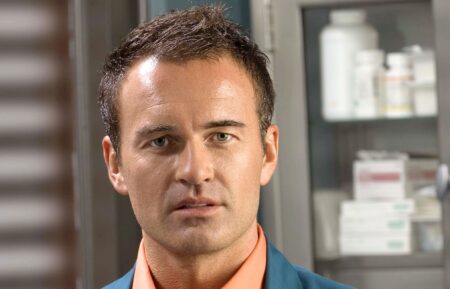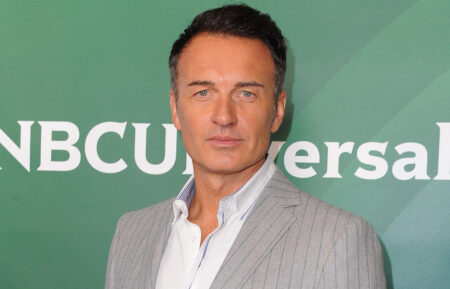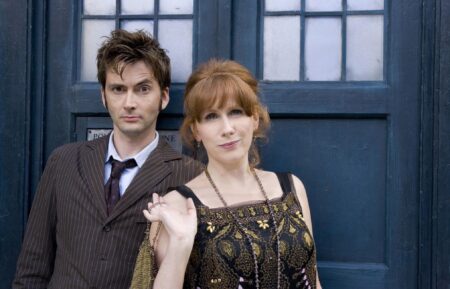The Americans Season Finale: What Happens After Paige’s Secret Phone Call?
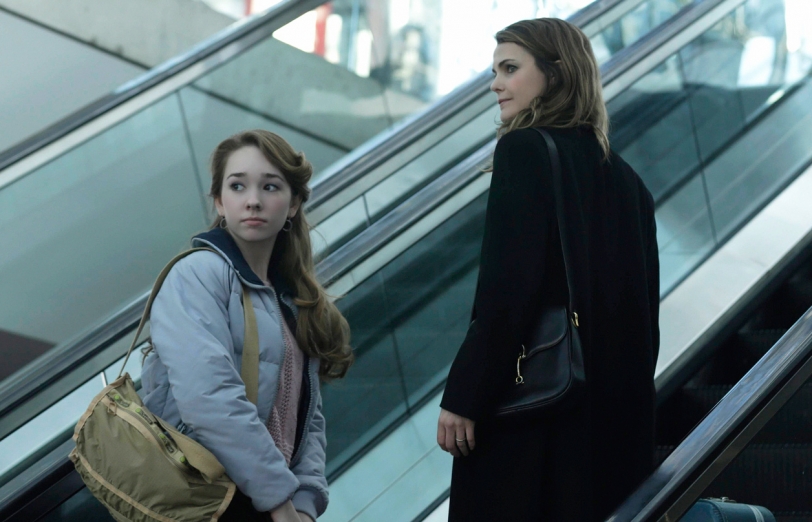
The Americans has a habit of nonchalantly dropping multiple bombshells on its characters and audience, and tonight’s Season 3 finale—which you should watch before reading any further—was no different. Elizabeth (Keri Russell) took daughter Paige (Holly Taylor) to see her dying mother in Europe, Philip (Matthew Rhys) seemed to reach his breaking point, and we closed out the season with Paige telephonically spilling her guts to Pastor Tim about her parents being Soviet spies. Executive producers Joel Fields and Joe Weisberg talked to us about KGB retirement plans, time jumps, and Pop Tarts.
It almost feels like the trip to West Berlin, seeing her mother’s mother, broke Paige.
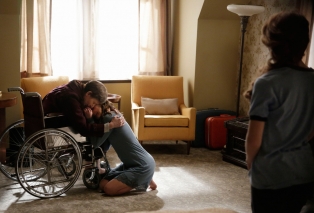
Fields: Well, to the extent that it did, it may have been a straw on a camel’s back. When she returned, she was faced with a moment of stepping back into her life, and she says, “It’s just so weird to have been there and now be here.” And she’s struggling with now another phase of this discovery about her life. And the question is: Can she hold it?
Weisberg: Another thing we discussed was that Elizabeth and Philip had this idea that seeing the grandmother would be something healing, or helpful … but ultimately the weirdness of it was just too overwhelming.
Does Paige see going into the family business, so to speak, as some viable path she must violently reject?
Fields: It’s certainly not on her radar yet.
Weisberg: Although you wonder where that question welled up from, that she asked in bed to her mother: “How could your mother send you away?”
We’re probably going to see Pastor Tim’s reaction next season. But how does a normal person react to being told that kind of secret?
Weisberg: Probably no normal person has ever had to react to something like that. So we’re not sure. [Laughs]
Fields: We have talked a lot about how Pastor Tim himself would react, and who he is. So it’s an important question for us.
Is it like Catholic confession, where there’s an inviolate agreement not to divulge that information?
Weisberg: Well, that’s another question we’ve been debating in a lively manner. …You’re not going to get an answer to that one from us. [Laughs]
How would you react, personally?
Fields: I would say, “Holy shit!” That would be my first reaction. Then it would be, “Oh, sorry if I overreacted.”
In some ways, this is the Center’s own fault. Is that one of the fundamental flaws of the Illegals program? It feels like they’re forgetting their people are people, not just agents of the State.
Weisberg: You could say that broadly about the whole system. [Laughs] The Soviet system, especially post-Stalin, probably didn’t have that problem in reality as much as in theory, but it did with the Illegals program, once they got into the idea that people could recruit their kids—which didn’t happen with all Illegals, but it did with some. They suffered because of that. And in response, Directorate S was always suspicious of the Illegals, whether or not they could trust them. There probably was some awareness of the problem.
Philip and Paige are in similar emotional states in the final scene, which was beautifully framed by director Dan Sackheim
Fields: If you look at the footage carefully, you see these very subtle push-ins to the characters until the moment where Paige says, “They’re Russians,” and there’s this very subtle explosion, everything starts to pull out. It’s beautifully directed.
What are the options for an operative who stops wanting to be an operative, as Philip seems to? Is that an option, or is it just, “Siberia, or a bullet in the brain”?
Fields: Well, we go to great pains to show the real KGB. It’s probably more of a fantasy KGB that you got a bullet in the brain just because you wanted to quit. You may have gotten a bullet in the brain if you were going to defect, or if you were going to somehow give away all the secrets.
Weisberg: You were allowed to retire, if that was what you wanted to do. But that’s not easy if you’re Philip Jennings, and your whole life is here now.
Philip and Paige are both falling apart on Elizabeth—how’s she supposed to handle that?
Fields: We don’t know! It’s tough. That’s part of the challenge of the season, and really of the series, and what’s to come. It’s a hard thing to be the strong one that allows everyone else to express where they’re at. But at some point she’s got her own needs and challenges too.
With Nina, I genuinely can’t tell what’s an act and what isn’t, at this point.
Fields: That’s a good thing! And we hope that that will all be answered in time.
Do you know the answer yourselves?
Weisberg: We do! It’s funny, we actually do, this year. In previous seasons there were sometimes some very lively debates on what was really going on inside her head or heart, and we felt that worked in previous seasons—we didn’t necessarily need to know, we didn’t have to have an answer. But this season, we happened to be all in agreement on where she’s headed, what she’s feeling and thinking.
Fields: Of course, we reserve the right to change that. [Laughs] But nobody will ever know.
We ended on March 3, 1983—the title of the episode. Have you decided whether you’re going to jump ahead for Season 4?
Fields: Vigorously debating right now in the writers’ room!
Weisberg: Literally today! We’ve been arguing all morning.
Fields: Nobody wants to move backwards. Hey! That would be an interesting move you don’t see a lot in television today. If you go backwards five years.
Weisberg: I kind of like that idea, Joel. Let’s do 1963. It’s really not a bad idea. Do their first year in America. We’ll do a season where Elizabeth is pregnant the entire time. [Laughs]
Fields: [Laughs] Phil’s like, “I’m doing all the work this year.”
Weisberg: “Bring me more Pop Tarts!” she says.
Fields: “Why are you eating these American Pop Tarts?!”
Weisberg: “I’m pregnant!”
Fields: This stuff writes itself.
When did Pop Tarts come into existence? Now I’m curious.
Fields: We’d research that. Believe it or not, we don’t know that off the top of our heads.
Google says they were introduced in 1964, apparently.
Fields: Really? So we’ve got that. Major historical event for next season: The introduction of Pop Tarts.



